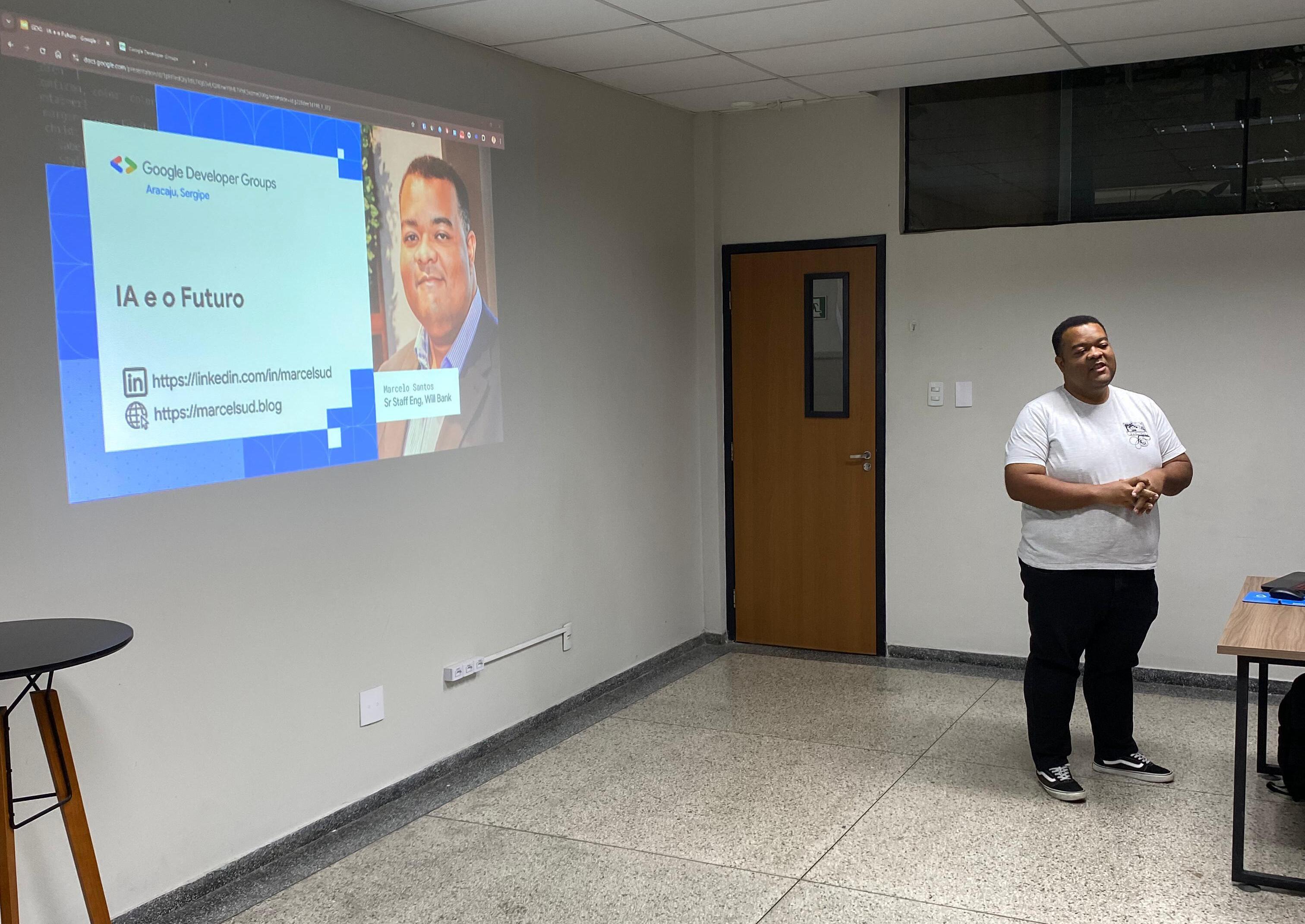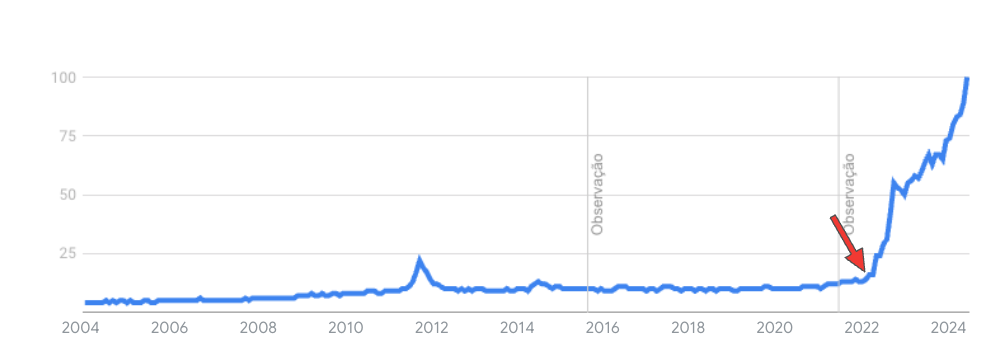AI and the Future: Reflections from My Talk at GDG Aracaju
- AI isn't just about having ready answers, but knowing how to ask the right questions to extract real value from technology and solve complex problems
- AI Agents represent the next evolutionary step: autonomous systems capable of perception, reasoning, action, and continuous learning
- Developers should focus on integrating AI APIs, mastering prompt engineering, and understanding machine learning fundamentals in the next 5 years
- Distinctly human skills like creativity, emotional intelligence, critical thinking, and ethical judgment will become even more valuable
- The future isn't about humans versus machines, but about human-AI collaboration to create solutions neither could achieve alone
Yesterday, at the GDG Aracaju meetup, I had the opportunity to share my vision about Artificial Intelligence and its impact on the future of technology. It was an experience rich in knowledge exchange and reflections that I'd like to share here.

What Is Artificial Intelligence?
I started the talk by addressing the fundamental definition of AI. Artificial Intelligence is the ability of machines to perform tasks that normally require human intelligence - such as pattern recognition, decision making, natural language understanding, and learning.
"In a sea of answers, the right questions are worth a lot"
This phrase summarizes one of the main lessons about AI: it's not just about having ready answers, but knowing how to ask the right questions to extract real value from technology.
The Exponential Growth of Interest in AI
The graph below shows how interest in AI has exploded in recent years, especially after 2022:

This growth isn't just hype - it represents a fundamental shift in how we think about technology and its applications.
AI Agents: The Next Step
During the presentation, I explored the concept of AI Agents - autonomous systems capable of:
- Perception: Collecting information from the environment
- Reasoning: Processing information and making decisions
- Action: Executing tasks based on decisions made
- Learning: Improving performance based on experience
Practical Applications of AI Agents
- Intelligent Virtual Assistants: That go beyond answering simple questions
- Process Automation: Intelligent workflow optimization
- Predictive Analysis: Anticipating trends and behaviors
- Mass Personalization: Unique experiences for each user
Strategies to Stay Relevant in the AI Era
Short Term (1-5 years)
For Developers:
- Learn to integrate AI APIs into your projects
- Master prompt engineering tools
- Understand machine learning fundamentals
- Practice with platforms like OpenAI, Anthropic, Google AI
For Business Professionals:
- Identify processes that can be optimized with AI
- Develop analytical thinking and data interpretation
- Learn to formulate problems in ways AI can solve
- Stay updated with trends and use cases
Long Term (5+ years)
Focus on what is distinctly human:
- Creativity and innovation: AI can generate, but humans define direction
- Emotional intelligence: Relationships and empathy remain human
- Critical thinking: Evaluating and questioning AI results
- Ethics and moral judgment: Complex decisions involving values
Transformative AI Applications
Healthcare
- More accurate diagnostics
- Accelerated drug discovery
- Personalized medicine
Education
- Personalized intelligent tutors
- Automated assessment and feedback
- Democratization of access to knowledge
Entertainment
- Personalized content creation
- Games with dynamic narratives
- Immersive experiences
Business
- Operations optimization
- 24/7 customer service
- Predictive market analysis
Final Reflections
AI isn't just another technology - it's a revolution that's reshaping all aspects of society. Success in this new era doesn't depend on competing with machines, but on learning to collaborate with them.
Fundamental Principles for the Future
- Continuous Learning: The only constant is change
- Strategic Thinking: Understanding not just the "how", but the "why"
- Human-AI Collaboration: Seeing AI as a partner, not a replacement
- Ethical Responsibility: Using AI responsibly and inclusively
Conclusion
The future with AI isn't about humans vs. machines - it's about humans with machines. Those who understand how to leverage this partnership will be better positioned to thrive in the new digital economy.
The question isn't whether AI will change the world - it's already changing it. The question is: how will you adapt and take advantage of these opportunities?
I thank GDG Aracaju for the opportunity to share these reflections and for the engagement of all participants. The future is built through discussions like this!
Let's exchange ideas about software engineering, architecture, and technical leadership.